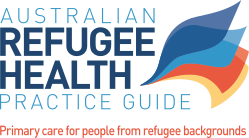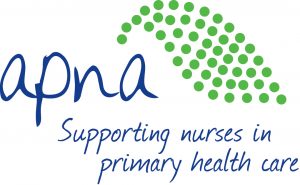Asylum seekers
Table of contents
Key points
- Asylum seekers are people who arrive in Australia and subsequently apply for protection as refugees
- Depending on the person’s mode and date of arrival in Australia, living arrangements and service eligibility will vary
- Visas and entitlements, including eligibility for Medicare, can change during the protection visa application process
- All people found to be refugees in Australia undergo a Visa Health Check which is performed by a provider contracted by the Commonwealth Department of Immigration and Border Protection
- Do not provide legal advice unless you are qualified to do so – if a person asks questions about their asylum claim, health professionals should refer them to a legal clinic or to advice and resources that have been prepared by legal services
Overview
Protection visa applications that are made in Australia are assessed by the Department of Immigration and Border Protection (DIBP) to determine whether the person legally engages the Australian Government’s protection obligations. Over recent years there have been multiple changes to how this processing occurs, and depending on the mode and date of arrival, different groups of asylum seekers have been and are processed under different systems, with different entitlements to have DIBP decisions reviewed.
Mode of arrival and entitlements
Asylum seekers arriving with a valid visa (usually by plane)
Those arriving with valid entry documentation (e.g. a student visa or visitor visa) are permitted to reside in the community while their application is considered and are often provided with a Bridging Visa for this purpose (e.g. Bridging Visa A, Bridging Visa E). This group of asylum seekers are Medicare eligible even though if they may not have work rights.
Asylum seekers arriving without a valid visa (usually by boat)
Asylum seekers who come by boat on or after 1 January 2014 are transferred offshore to either Nauru or Manus Island, Papua New Guinea, to have their protection claims assessed by those countries.
Immigration detention (including alternate places of detention, immigrant transit accommodation, and immigration detention facilities)
Asylum seekers who arrived without a valid entry visa are subject to periods of immigration detention. Those who arrived before 31 December 2013 were usually detained on Christmas Island in the first instance, and then moved to mainland immigration detention facilities. While in detention facilities, healthcare is facilitated by the DIBP contracted service International Health and Medical Services (IHMS). Contracted hospitals that have reimbursement arrangements with the DIBP also provide care to people in immigration detention. People in detention are accompanied by guards to all appointments outside of the detention facility. After release from a detention facility, asylum seekers are allocated a Status Resolution Support Service Caseworker (SRSS provider). They are given a detention health discharge summary prepared by IHMS. If this is misplaced, health professionals may request a copy from the SRSS provider.
Find the SRSS providers in your state.
Community placement (previously known as community detention)
Some asylum seekers are released from immigration detention facilities into the community under residence determination arrangements. Placement in the community allows people to move about without being accompanied. DIBP have contracted service providers under the SRSS program to provide housing, case management support and, where appropriate, counselling for pre arrival experiences of torture and trauma. Community placement clients are not eligible for Medicare, instead IHMS is contracted by the DIBP to facilitate and pay for a specified range of health services for this group.
Living in the community post-detention
Asylum seekers may be released from detention facilities on a Bridging Visa E (BVE) to live in the community. This group are reliant on the private rental market, and receive housing and case work support from SRSS providers after they exit detention. Holders of BVEs waiting for the outcome of their protection visa application are eligible for Medicare and may have associated work rights. Some asylum seekers who have appealed a negative decision and whose case is at judicial review may be living in the community without Medicare and work rights. Medicare validity and expiry is also linked with the BVE. In circumstances where a BVE has expired due to DIBP administrative processing delays, a client remains in the community without a valid Medicare card. In these instances payment for medical services may be arranged in advance with SRSS providers through a letter of supply.
Code of behaviour
People who arrived by boat and are 18 years of age or older must sign the DIBP Code of Behaviour before they are considered for the grant of a Bridging E visa. The Code of Behaviour makes certain kinds of behaviour (over and above Australian criminal laws) potentially punishable by cancellation of that Bridging Visa, and therefore detention. The Code includes a requirement to ‘comply with any health undertaking provided by the Department of Immigration and Border Protection or direction issued by the Chief Medical Officer (Immigration) to undertake treatment for a health condition for public health purposes’.
Protection visas (permanent and temporary)
People who arrive in Australia with a valid visa then apply and are found to be owed protection, are entitled to a Permanent Protection Visa, subclass 866. This entitles holders to permanent residency and a pathway to citizenship and the ability to apply to sponsor their family.
People who arrive in Australia without a valid visa, then apply and are found to be owed protection, are entitled to a Temporary Protection Visa (TPV, subclass 745) for up to 3 years or a Safe Haven Enterprise Visa (SHEV, subclass 790) for up to 5 years. TPV and SHEV holders are eligible for Medicare for the duration of their visa. On either form of temporary visa, it is not possible to become a citizen, or to sponsor overseas family members to come to Australia. The Safe Haven Enterprise Visa allows you to then apply for a limited range of other kinds of visas if you work or study for 3.5 years in designated regional areas.
Important considerations for the health care of people seeking asylum
- Some asylum seekers living in the community are ineligible for Medicare. Asylum seekers may be eligible for assistance with health care and income support through the Status Resolution Support Services (SRSS) program. Those who are Medicare ineligible and not eligible for SRSS rely on specialist asylum seeker health services and other, often pro bono, services.
- Containing the cost of care will be important as asylum seekers may face restrictions on their rights to employment, income support and other benefits.
- Asylum seekers may not have undergone the Immigration Medical Examination offshore, but will do so in Australia as part of their application for permanent protection.Practice tips and considerations for working with people seeking asylum
Mental distress and suicide risk
“Asylum seekers can spend years in the community awaiting final determination of their case. The fear of being returned home, coupled with isolation and destitution, can be overwhelming. Statements of suicidal thought by an asylum seeker should always trigger an action response plan, which may include provision of enhanced support or calling in the specialist mental health crisis team.”1
Impact of poverty
“Many asylum seekers may eat poorly and frugally. Over winter, almost all asylum seekers economise on heating, and in summer on cooling. GPs should be aware of food banks in their community and the local charities that provide clothing and other essential items.”1
Affordability of medications
“Asylum seekers with chronic diseases are often faced with choosing between medications. GPs should assist them in decision-making about which medications to prioritise and, where possible, should prescribe the cheapest medication in its class or for the therapeutic purpose.”1
Confidentiality and interpreters
- Be aware that a telephone interpreter may be preferred by the patient for confidentiality reasons – especially if they are from a small community or language group
- The patient’s name does not need to be given to interpreting services. You can state that this is confidential and this can speed up the process. In circumstances where the client is extremely concerned about confidentiality, offer to call the client by another name during the consultation and book an interstate interpreter if possible.
Links
See your state referral page for:
- Immigration legal service providers
- Status Resolution Support Services (SRSS) Programme
- Pro-bono medical services
References
- Phillips, 2014, ‘Beyond Resettlement: Long-term care for people who have had refugee-like experiences’, Australian Family Physician, Volume 43 Issue 11




